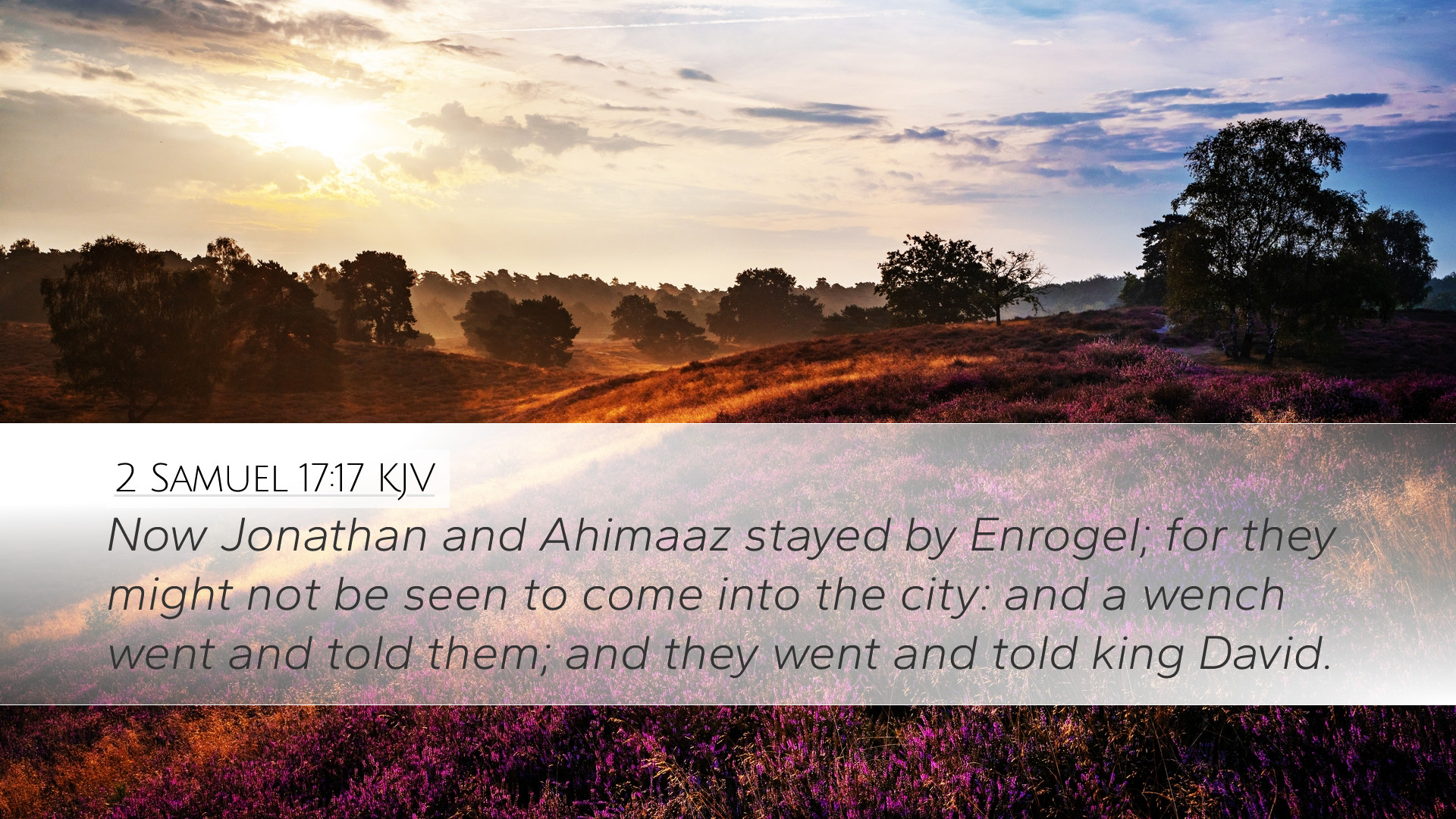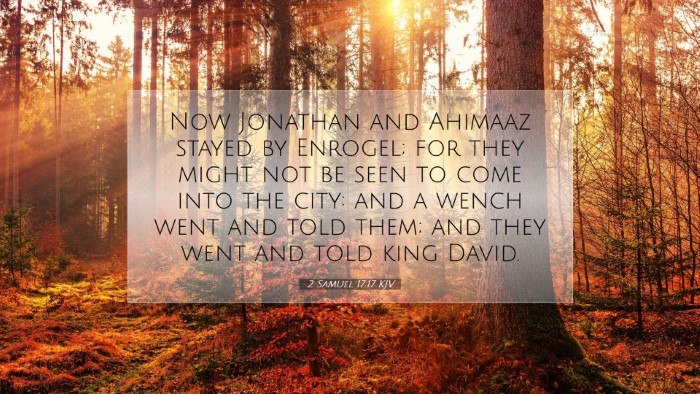Commentary on 2 Samuel 17:17
The verse 2 Samuel 17:17 reads: “But Jonathan and Ahimelech’s son had stayed at En Rogel; and they went and told King David.” This passage occurs during a tumultuous time in David's life, characterized by rebellion and political maneuvering. The insights drawn from various public domain commentaries offer a deeper understanding of the verse.
Contextual Analysis
In this chapter of 2 Samuel, we find that David's kingdom is under siege from his son Absalom. As a result, loyal followers of David, such as Jonathan and Ahimelech's son (most likely Ahimelech, the priest), are pivotal in providing news and support to the beleaguered king. The tension of this narrative sets the stage for understanding the importance of loyalty and the risks undertaken by David's supporters.
Insights from Matthew Henry
Matthew Henry highlights the bravery and loyalty of Jonathan and Ahimelech's son. He notes:
- Risk of Information: The act of informing David of Absalom's plans at such personal risk demonstrates a profound commitment to loyalty. Their secretive actions underscore the themes of trust and vigilance during troubled times.
- Signification of En Rogel: En Rogel, a place near Jerusalem, symbolizes a point of gathering and strategizing amidst danger. Such settings are critical in biblical narratives, where geography often parallels spiritual significance.
Insights from Albert Barnes
Albert Barnes offers a thorough dissection of the verse. He expounds:
- Role of Messengers: Barnes emphasizes the role of messengers in ancient narratives. The act of Jonathan and Ahimelech's son as bearers of vital information is emblematic of the larger spiritual war taking place—where knowledge can lead to life or death.
- Symbolism of Loyalty: Their commitment to David serves as an archetype for faithfulness, illuminating the theological concept of remaining steadfast amidst adversity. Their actions mirror the covenantal loyalty expected of the people of God.
Insights from Adam Clarke
Adam Clarke delves intimately into the practical and theological implications of this passage. He notes:
- Act of Discretion: The discreet nature of their actions reflects wisdom in dangerous circumstances. This aligns with biblical principles of prudence and divine guidance in making decisions during crises.
- Theological Reflections: Clarke poses the deeper spiritual implications of the loyalty shown by Jonathan and Ahimelech’s son. Their actions remind believers of the divine call to support God’s appointed leaders through thick and thin.
Practical Applications
From a pastoral perspective, 2 Samuel 17:17 provides valuable lessons and applications:
- Loyalty to God’s Leaders: In contemporary church contexts, this passage encourages believers to support their leaders faithfully while exercising discernment and wisdom.
- Importance of Community: Just as Jonathan and Ahimelech’s son function as a supportive community for David, churches today are called to ensure that they are nurturing one another in times of distress.
- Prayer and Intercession: The act of informing David can be likened to prayer and intercession. Supporters of a leader must pray for their guidance, protection, and wisdom.
Conclusion
2 Samuel 17:17 serves as a profound reminder of loyalty, courage, and the support that is crucial in the face of trials. The insights from traditional commentaries help deepen our understanding of the dynamics of faithfulness to God’s anointed. As pastors, students, theologians, and Bible scholars reflect on this passage, they are encouraged to consider the implications of loyalty within their own contexts and communities.


